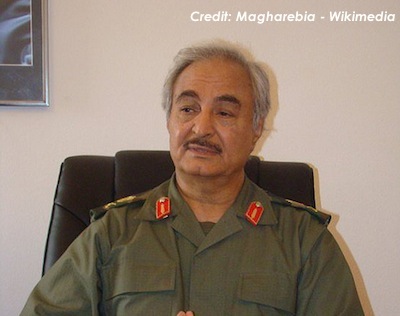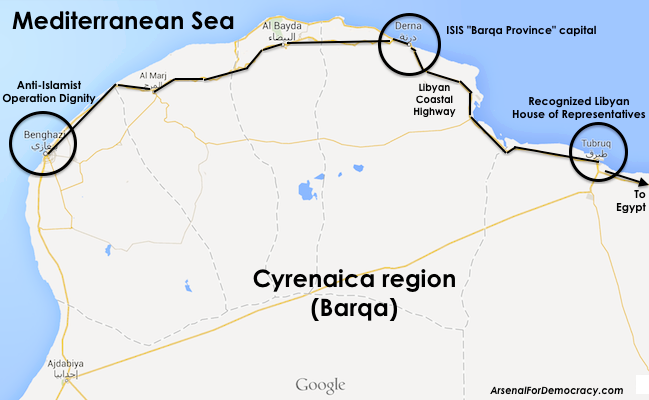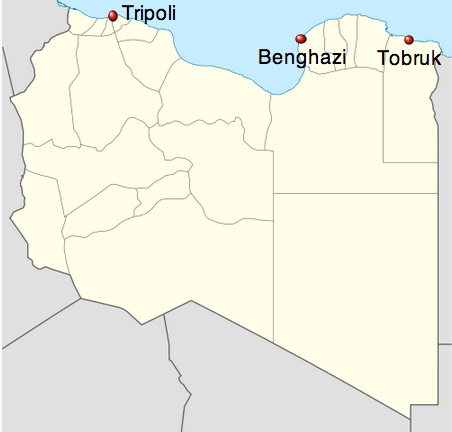 General Khalifa Hifter (all stories➚) is a poison in Libya. In the first half of last year, the former “Virginia resident” tried to lead two failed coups against the elected, Islamist-led government in Tripoli (see our coverage here and here), and he unilaterally launched a bloody, unprovoked, and unauthorized military assault — called “Operation Dignity” — against Islamist-aligned militias in Benghazi.
General Khalifa Hifter (all stories➚) is a poison in Libya. In the first half of last year, the former “Virginia resident” tried to lead two failed coups against the elected, Islamist-led government in Tripoli (see our coverage here and here), and he unilaterally launched a bloody, unprovoked, and unauthorized military assault — called “Operation Dignity” — against Islamist-aligned militias in Benghazi.
Not only did the operation essentially fail to achieve any sort of purge of purported Islamic terrorism from eastern Libya, but I believe that it was a major factor in the uprising that followed the election of the new secularist government later in 2014. Unlike in Tunisia, which saw a smooth transfer of power from Islamists to secularists and had not seen security forces crack down on Islamists before the elections, Libyan Islamists had good reason to fear that a government aligned with Hifter (yes, elected, but under disputed circumstances and for possibly the last time) would pose an existential threat to them. It is quite possible that without Hifter’s ill-advised and ill-conceived unilateral coup attempts in western Libya and counterterrorism offensives in eastern Libya, Islamist militias would not have seized power in Tripoli and Benghazi in the second half of the year and proclaimed a rival government composed of the remainder of the previous government, which he had tried to overthrow.
General Hifter is not even well-liked among many secularists and members of the more recently elected (and internationally-recognized) legislature and cabinet now stationed in Tobruk, near the Egyptian border. He doesn’t respect them either, as far as anyone can tell, despite their international recognition and democratically elected status. He is as deeply anti-democratic as he is anti-Islamist (which, again, I would argue is one reason the Islamist uprising occurred: fear of his illiberalism and targeted hatred of political Islam). Nevertheless, the elected officials have been unable to to get rid of him, even under heavy pressure from Egypt’s military government — which supports his anti-Islamist aims but not his incompetence.
And that last word — “incompetence” — is the other thing it’s important to remember when considering how he poisons Libya: General Khalifa Hifter is not even good at his self-appointed job. It might be another matter — perhaps — if he actually achieved results or had decisively ended the threat of civil war in Libya. Instead, he stirred war up in the first place and then repeatedly botched things. Simply put, he doesn’t win offensives.
Read more






